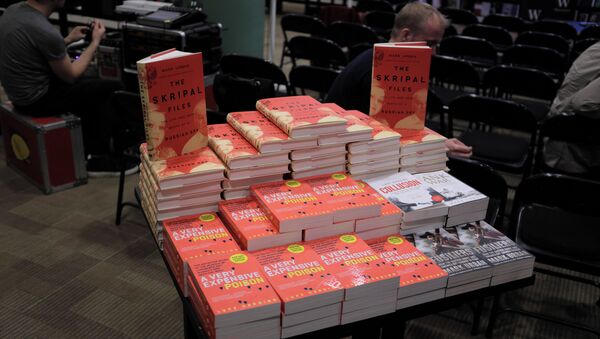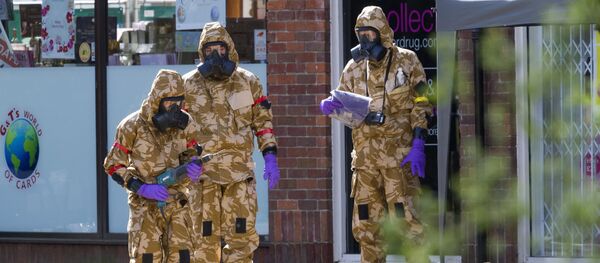The statement came just two days before the anniversary of the notorious incident, in which Skripal and his daughter Yulia were poisoned by what London qualified as a military-grade A234 nerve agent. While London has accused Moscow of being behind the attack, these allegations have been repeatedly refuted as baseless by the Russian government.
"There is substantial interest in Russia for all British media reports on this matter. Considering their inconsistency, the Russian public becomes more and more convinced that the Salisbury incident has been in fact a major anti-Russian set-up. The atmosphere of secrecy created by the British authorities around the investigation yet fuels such belief," the press officer of the embassy said, as quoted in the statement.
READ MORE: Skripal House in Salisbury Declared Safe After Decontamination — Police
Commenting on The Financial Times' Thursday report, claiming that Russian media have been misleading the public by publishing a total of 138 contradictory accounts of the incident, the press officer said that these were, in fact, "separate points on various aspects of the incident," adding that it was not surprising that Russian journalists were trying to "understand what has really happened in Salisbury," since the UK government had not provided its account.
"Despite the fact that the Salisbury incident happened almost a year ago, the British authorities have not published the results of the police investigation, which, as we understand, is still ongoing. The British and Russian public have to settle for multiple leaks (the vast majority of which appear in the British rather than Russian media) that the government persistently refuses to confirm or deny," the press officer said.
However, Moscow has repeatedly noted that London has not provided any evidence proving the Russian role in the poisoning. Petrov and Boshirov, in turn, denied their involvement in the attack in an interview with the RT broadcaster.
The Russian Foreign Ministry said that it had sent about 60 diplomatic notes to the UK Foreign Office, demanding that Russia should be given access to the investigation and offering cooperation but to no avail.



